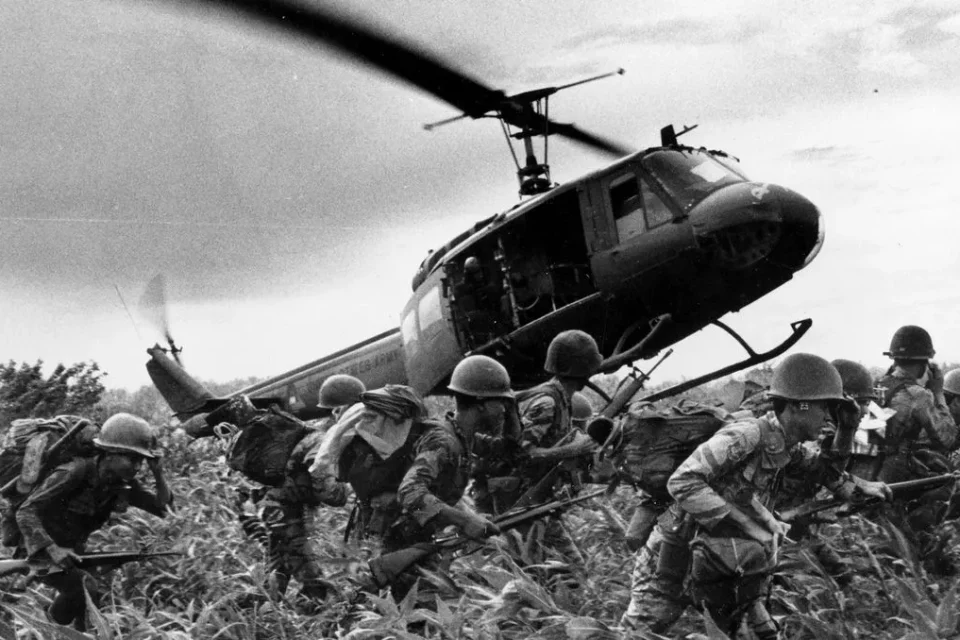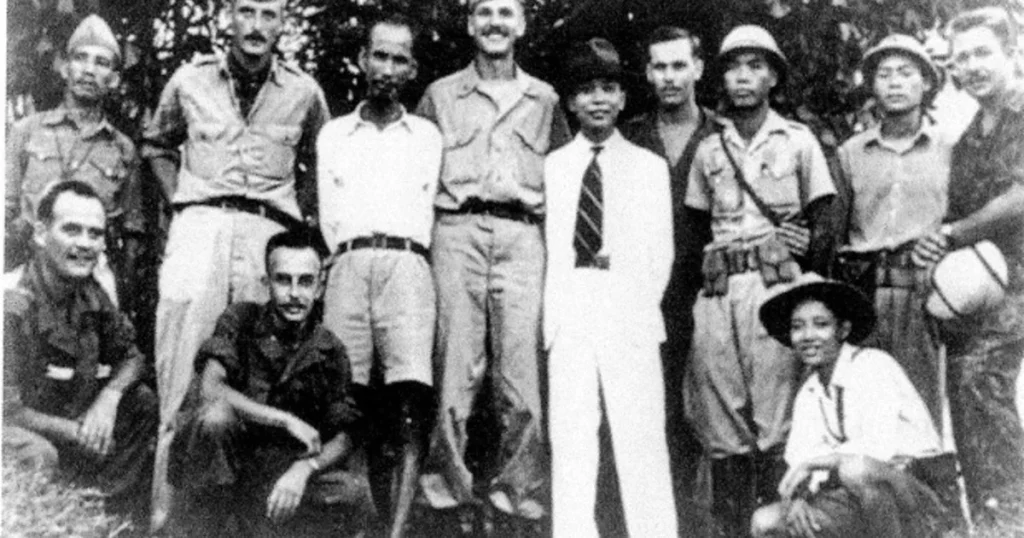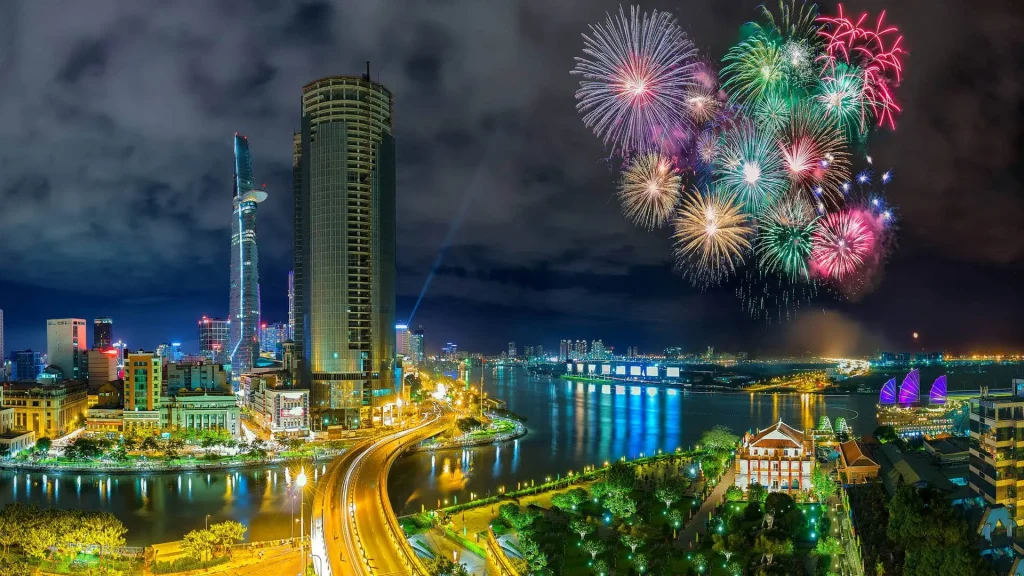Vietnamese Independence: Ho Chi Minh and the Fight for Freedom

For centuries, Vietnam had endured a tumultuous history marked by foreign occupation and the struggle for independence. The country’s strategic location and rich natural resources made it a prime target for colonial powers seeking to expand their influence in Southeast Asia. In the late 19th century, Vietnam fell under the control of the French, who established a protectorate over the region and imposed their rule with an iron fist.
The French colonial administration was characterized by economic exploitation, political oppression, and the suppression of Vietnamese culture and identity. The local population was subjected to harsh taxation, forced labor, and restricted civil liberties. Attempts by the Vietnamese to resist and assert their independence were often met with brutal crackdowns and violent suppression. This period of colonial domination fueled a growing sense of nationalism and a deep-rooted desire for self-determination among the Vietnamese people.
It was against this backdrop of colonial subjugation that a young man named Nguyen Tat Thanh, later known as Ho Chi Minh, emerged as a pivotal figure in the struggle for Vietnamese independence. Born in 1890 in the central Vietnamese province of Nghe An, Ho Chi Minh was exposed to the realities of French rule from an early age. His formative years were marked by a growing awareness of the injustices and inequalities perpetuated by the colonial system, and this experience would shape his lifelong commitment to the cause of national liberation.
Article Contents
- 1 Life and achievements of Ho Chi Minh
- 2 The founding of the Communist Party of Vietnam
- 3 Ho Chi Minh’s role in organizing resistance against French colonial rule
- 4 The First Indochina War and the establishment of North Vietnam
- 5 Ho Chi Minh’s leadership during the Vietnam War
- 6 The legacy of Ho Chi Minh and Vietnamese independence
- 7 Commemorating Ho Chi Minh’s contributions to Vietnam
- 8 The ongoing struggle for independence and national unity in Vietnam
- 9 Author
Life and achievements of Ho Chi Minh
Ho Chi Minh’s journey towards becoming the iconic leader of the Vietnamese independence movement was a long and arduous one. After completing his formal education, he traveled extensively, working a variety of jobs and immersing himself in the global currents of anti-colonial and socialist thought. It was during these years of self-discovery and political awakening that Ho Chi Minh developed a deep understanding of the principles of nationalism and Marxism, which would later form the foundation of his revolutionary ideology.
In the early 1910s, Ho Chi Minh left Vietnam and embarked on a journey that would take him around the world, from Europe to the United States and eventually to the Soviet Union. During this time, he witnessed firsthand the struggles of oppressed peoples and the growing momentum of national liberation movements. This exposure solidified his conviction that the path to Vietnam’s freedom lay in the principles of communism and the creation of a unified, independent state.
Upon his return to Asia in the 1920s, Ho Chi Minh set about putting his political ideas into action. He founded the Vietnamese Revolutionary Youth League, an organization dedicated to the overthrow of French colonial rule and the establishment of a sovereign Vietnamese state. Through tireless organizing, recruitment, and political education, Ho Chi Minh built a strong base of support among the Vietnamese people, laying the groundwork for the eventual creation of the Communist Party of Vietnam.

The founding of the Communist Party of Vietnam
In 1930, Ho Chi Minh took a pivotal step in the Vietnamese independence movement by founding the Communist Party of Vietnam (CPV). This decision was rooted in his belief that Marxism-Leninism offered the best framework for achieving national liberation and social transformation. The CPV, under Ho Chi Minh’s leadership, would become the driving force behind the struggle for Vietnamese independence, uniting diverse groups and factions under a common banner of anti-colonial resistance.
The founding of the CPV was a strategic move that capitalized on the growing discontent and revolutionary fervor among the Vietnamese masses. Ho Chi Minh recognized the need for a well-organized, disciplined, and ideologically-driven political party to lead the struggle against the French. Through the CPV, he was able to mobilize and coordinate the efforts of peasants, workers, intellectuals, and military forces, all united in their desire for self-determination and the establishment of a socialist state.
The early years of the CPV were marked by intense political and military struggle. The party faced fierce opposition from the French colonial authorities, who sought to crush the growing independence movement through repression, imprisonment, and even execution of its leaders. Despite these challenges, Ho Chi Minh and the CPV remained steadfast in their commitment to the cause, adapting their tactics and strategies to overcome the obstacles they faced. This unwavering determination would prove crucial in the years to come, as the party prepared to launch a full-scale armed struggle against the French colonial regime.
Ho Chi Minh’s role in organizing resistance against French colonial rule
As the leader of the Communist Party of Vietnam, Ho Chi Minh played a pivotal role in organizing and directing the resistance against French colonial rule. He recognized the need for a comprehensive and coordinated approach, one that combined political mobilization, military action, and international diplomacy to achieve the ultimate goal of Vietnamese independence.
Ho Chi Minh’s first step was to build a broad-based coalition of nationalist and communist forces, uniting diverse groups under the banner of the Viet Minh (the League for the Independence of Vietnam). This umbrella organization brought together a wide range of individuals and organizations, from peasants and workers to intellectuals and military leaders, all committed to the cause of national liberation. Through the Viet Minh, Ho Chi Minh was able to harness the collective energy and resources of the Vietnamese people, creating a formidable force that could challenge the might of the French colonial administration.
In the late 1940s, as tensions between Vietnam and France escalated, Ho Chi Minh and the Viet Minh launched a series of armed attacks against French military installations and outposts. This marked the beginning of the First Indochina War, a protracted and bloody conflict that would ultimately lead to the withdrawal of French forces from Vietnam. Throughout this period, Ho Chi Minh demonstrated his strategic acumen, his ability to adapt to changing circumstances, and his unwavering commitment to the goal of Vietnamese independence.
The First Indochina War and the establishment of North Vietnam
The First Indochina War, which lasted from 1946 to 1954, was a pivotal moment in the history of Vietnamese independence. Under Ho Chi Minh’s leadership, the Viet Minh forces engaged in a prolonged and grueling struggle against the French colonial army, employing guerrilla tactics and exploiting the support of the Vietnamese people to gradually erode the French position in the region.
Despite the overwhelming military might of the French, the Viet Minh was able to achieve a series of significant victories, culminating in the decisive battle of Dien Bien Phu in 1954. This landmark event, in which the Viet Minh forces decisively defeated the French, marked the end of French colonial rule in Vietnam and paved the way for the country’s division into North and South Vietnam.
The Geneva Accords, signed in 1954, formally recognized the independence of Vietnam and called for national elections to be held in 1956 to determine the country’s future. However, the United States, fearing the potential rise of communist influence in the region, intervened to prevent the elections from taking place, effectively dividing Vietnam into two separate states: the communist-led Democratic Republic of Vietnam (North Vietnam) and the anti-communist Republic of Vietnam (South Vietnam). This decision would set the stage for the next phase of the Vietnamese struggle for unity and independence – the Vietnam War.
Ho Chi Minh’s leadership during the Vietnam War
As the political and military tensions between North and South Vietnam escalated, Ho Chi Minh found himself at the forefront of the ongoing struggle for Vietnamese independence. As the revered leader of the Democratic Republic of Vietnam, he continued to rally the Vietnamese people to the cause of national liberation, using his political acumen and diplomatic skills to secure international support and navigate the complex geopolitical landscape.
Throughout the Vietnam War, which lasted from 1955 to 1975, Ho Chi Minh provided strategic guidance and inspiration to the North Vietnamese forces, known as the Viet Cong. He oversaw the implementation of a comprehensive military strategy that combined guerrilla tactics, conventional warfare, and political mobilization to gradually erode the strength of the South Vietnamese and American forces. Despite the immense challenges and the devastating toll of the conflict, Ho Chi Minh remained steadfast in his determination to achieve a unified, independent Vietnam.
Even as he advanced in age, Ho Chi Minh remained actively involved in the war effort, using his influence and diplomatic connections to garner international support for the North Vietnamese cause. He traveled extensively, meeting with world leaders and rallying support for the Vietnamese struggle, while also providing strategic guidance and inspiration to the soldiers and civilians on the ground. Through his unwavering leadership and his ability to adapt to changing circumstances, Ho Chi Minh became a symbol of Vietnamese resilience and the indomitable spirit of the independence movement.

The legacy of Ho Chi Minh and Vietnamese independence
The life and legacy of Ho Chi Minh are inextricably linked to the story of Vietnamese independence. As the iconic leader of the country’s struggle for freedom, he left an indelible mark on the history and identity of the Vietnamese people. His vision, his determination, and his unwavering commitment to the principles of nationalism and socialism have continued to inspire generations of Vietnamese to fight for their rights and their homeland.
Even after his death in 1969, Ho Chi Minh’s influence and legacy have endured. He is revered as a national hero, a symbol of togelon login resilience and the triumph of the human spirit over the forces of oppression. His image, his writings, and his ideas continue to be celebrated and studied throughout Vietnam and the world, serving as a testament to the power of a single individual to shape the course of history.
The legacy of Ho Chi Minh extends far beyond the borders of Vietnam, as his life and struggles have become a source of inspiration for independence movements and anti-colonial struggles around the globe. His unwavering commitment to the principles of self-determination, social justice, and the emancipation of the oppressed have resonated with people fighting for their own freedom, making him a global icon of the struggle for national liberation.
Commemorating Ho Chi Minh’s contributions to Vietnam
In recognition of Ho Chi Minh’s pivotal role in the Vietnamese independence movement, the country has dedicated numerous monuments, museums, and cultural institutions to honor his memory and legacy. From the Ho Chi Minh Mausoleum in Hanoi to the Ho Chi Minh Museum, these sites serve as a testament to the enduring impact of this remarkable leader and the sacrifices he made in the pursuit of a free and independent Vietnam.
Beyond these physical tributes, Ho Chi Minh’s birthday, September 2nd, is celebrated as a national holiday in Vietnam, known as Ho Chi Minh Day. This annual commemoration is a time for the Vietnamese people to reflect on their history, honor the memory of their revered leader, and reaffirm their commitment to the principles of nationalism, socialism, and the ongoing struggle for national unity and progress.
The legacy of Ho Chi Minh extends far beyond the borders of Vietnam, as his life and struggles have become a source of inspiration for independence movements and anti-colonial struggles around the globe. His unwavering commitment to the principles of self-determination, social justice, and the emancipation of the oppressed have resonated with people fighting for their own freedom, making him a global icon of the struggle for national liberation.
The ongoing struggle for independence and national unity in Vietnam
The story of Vietnamese independence, as embodied by the life and legacy of Ho Chi Minh, is a testament to the power of determination, resilience, and the human spirit. In the face of overwhelming odds and the might of colonial powers, Ho Chi Minh and the Vietnamese people fought tirelessly to reclaim their sovereignty and forge a nation that would stand as a beacon of hope and inspiration for oppressed peoples around the world.
While the journey towards Vietnamese independence has been marked by triumphs and setbacks, the enduring spirit of the nation and the continued reverence for Ho Chi Minh’s legacy serve as a reminder that the struggle for self-determination is an ongoing and ever-evolving process. As Vietnam continues to navigate the complexities of the modern world, the principles and ideals championed by Ho Chi Minh remain as relevant and inspiring as ever, guiding the country’s pursuit of national unity, economic development, and a brighter future for all its citizens.
In the annals of history, the name Ho Chi Minh will forever be synonymous with the Vietnamese people’s unwavering fight for freedom and independence. His life and legacy have become a beacon of hope, a testament to the power of the human spirit, and a reminder that the quest for self-determination is a universal and timeless struggle that continues to shape the course of nations and the lives of individuals around the world.
Also read: Fifth Harmony: The Rise, Impact, and Legacy of a Pop Sensation
